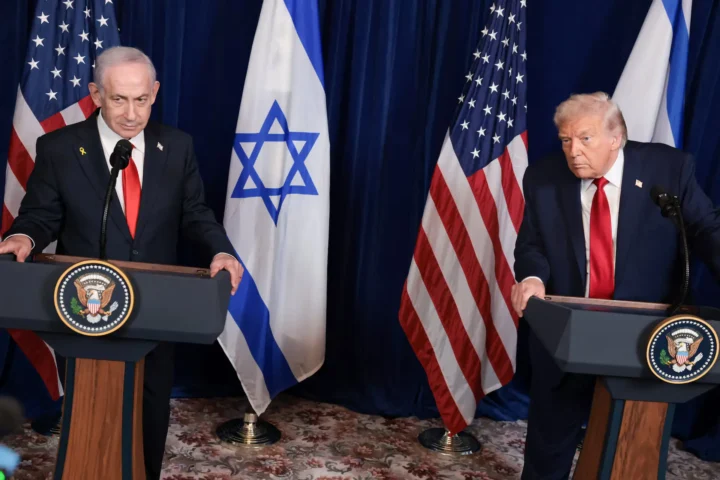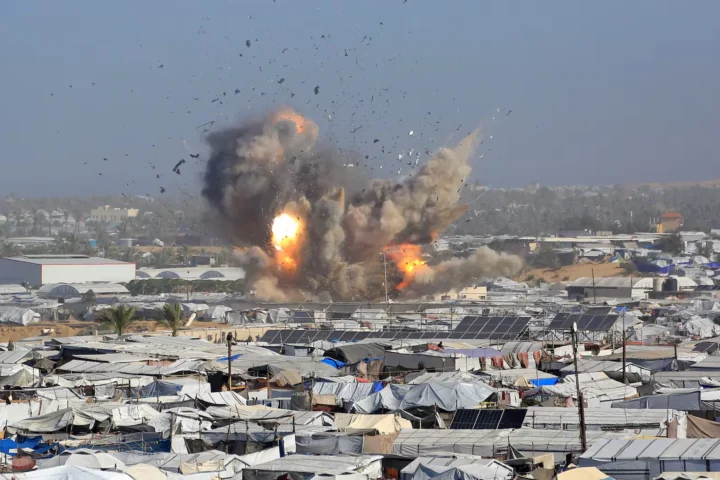As the 2024 election approaches, the political stage feels less like a standard contest of ideas and more like an ideological battleground. Nowhere was this more evident than in Las Vegas this past Thursday evening. Former President Donald Trump took to the stage at the University of Nevada, Las Vegas, and—true to his style—delivered a speech loaded with sharp criticisms of the Biden-Harris administration, a renewed pledge for tax cuts, and a stinging indictment of Vice President Kamala Harris, whom he claimed is “imploding.”
To the cheers of his audience, Trump lambasted Harris as “grossly incompetent,” underscoring her supposed unpopularity in key states, including Nevada. He highlighted poll numbers that, according to him, favor his ticket in battleground regions such as Arizona, Michigan, and Pennsylvania—places Trump previously struggled to secure. His confidence, if somewhat overblown, signals the deepening ideological and policy divides as both parties scramble to shore up support in these highly competitive areas.

Trump’s tax-cut promises took center stage, particularly his commitment to eliminating taxes on tips, overtime, and Social Security benefits. This pledge targets not only the working class but also the senior voter base—a demographic that has leaned Republican in recent years. The proposed Social Security tax cut, which drew the loudest applause of the night, reflects Trump’s calculated appeal to a specific subset of Americans who feel sidelined by the current administration’s handling of inflation and economic uncertainty.
It’s no accident that Trump used Nevada as the backdrop for these promises. In a state with a significant service industry, the pledge to abolish taxes on tips could resonate with workers who rely on gratuities as part of their income. Trump’s speech also took a swipe at Harris, pointing out that she seemed to adopt the no-tip-tax stance only after he initially suggested it—a detail meant to paint her as opportunistic and out of touch. Yet, in his criticism, Trump downplayed that Harris has advocated for worker-friendly policies throughout her career, albeit with differing approaches to taxation.
But Trump’s attacks on Harris extended beyond economics. He framed her alleged “gross incompetence” as symptomatic of a broader “failed” Biden-Harris administration, which he blames for high inflation, perceived foreign policy missteps, and “woke” military reforms. Trump painted a hypothetical scenario in which, had he remained president, Russia’s invasion of Ukraine would never have taken place, and the recent violence in Israel would have been avoided—narratives that resonate with those who feel the current administration has lacked a strong, decisive foreign policy.
Then came Trump’s polarizing promise: if elected, he would contact both Vladimir Putin and Volodymyr Zelenskyy immediately upon becoming president-elect to seek a resolution to the Ukraine war. “I don’t have to wait until January 20th,” he said, suggesting that his sheer presence would somehow bring stability to the conflict. Whether Trump’s self-confidence is realistic or not, it’s a powerful rhetorical tactic that portrays him as a bringer of peace amid a world rife with turmoil—an image intended to counter the often-unflattering portrayal of his foreign policy record by the current administration.

However, as Trump and his allies like Sen. Marco Rubio and Tulsi Gabbard railed against the Democrats, one must remember that the messaging wars have only just begun. Both sides are angling to frame the stakes as existential for their vision of America. For Democrats, this means highlighting Trump’s chaotic first term and the controversies surrounding his administration, arguing that his rhetoric is divisive and counterproductive. Republicans, meanwhile, are poised to drive home that the status quo has failed middle America, and a vote for Trump is a vote to “fix our country.”
The passion on display in Las Vegas underscores the divisive path forward for the United States. Trump’s supporters, energized by his promises to cut taxes and fight inflation, are emboldened by his portrayal of himself as the last line of defense against “incompetent” leadership. Yet this rally also serves as a reminder of the stakes. Both candidates have the responsibility to address the very real issues facing American voters rather than relying on rhetoric alone.
As the 2024 election draws near, Trump’s Vegas rally shows us a glimpse of the campaign’s trajectory: one part reality show, one part policy debate, and wholly reflective of a nation increasingly divided.











